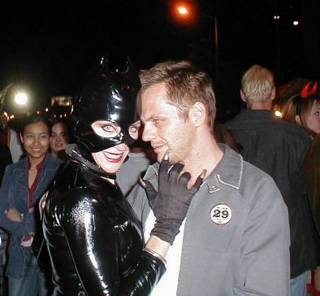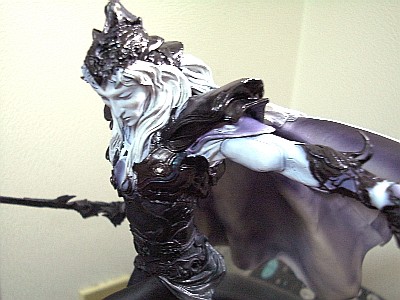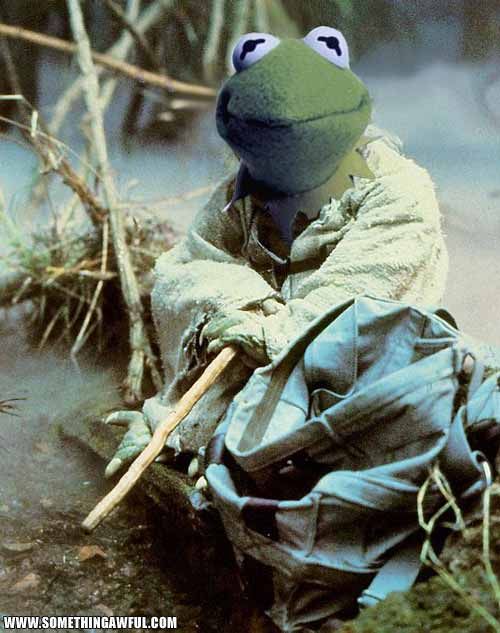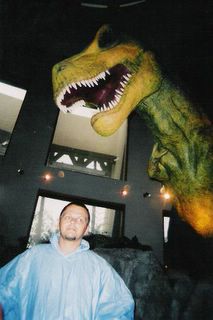'I'm Done with Aliens'

Researcher Takes Aim at Alien Abductions
from The Associated Press
CAMBRIDGE, Mass. - Susan Clancy is sick of space aliens. The Harvard psychologist figures she has read every book and seen every movie ever made about extraterrestrials, and she has interviewed roughly 50 people who claim to have been abducted by aliens.

All in the name of scientific truth, not science fiction.
"I have become a reluctant scholar of alienography," Clancy said.
Clancy is bracing for a fresh round of hate mail once her book, Abducted: How People Come To Believe They Were Kidnapped By Aliens, is published by Harvard University Press later this month.
Those who believe aliens are among us haven't taken kindly to her theory that abductees have created "false memories" out of, she writes, a "blend of fantasy-proneness, memory distortion, culturally available scripts, sleep hallucinations, and scientific illiteracy."
That doesn't mean Clancy thinks her subjects are crazy. In fact, she was surprised how many of them seemed quite normal, intelligent and articulate.
"Arguing weird beliefs is a very normal thing," she said in a telephone interview from Nicaragua, where she has a research job. "It's very human for us to believe in things for which there is no scientific evidence."
When she arrived at Harvard in 1996, Clancy didn't set out to debunk the stories of little green men kidnapping people from their bedrooms and using them for painful experiments. Instead, she started her research on false memories by studying victims of sexual abuse.
She quickly found herself the target of angry "outsiders" who accused her of trying to discredit victims. One irate letter-writer called her a "friend of pedophiles everywhere."
Wouldn't
 it be easier to test her theories if she could be certain that her subjects' memories were not real? She and her adviser, Harvard psychologist Richard McNally, placed a newspaper ad that asked, "Have you been abducted by aliens?" It took less than a day for callers to fill her voice mail.
it be easier to test her theories if she could be certain that her subjects' memories were not real? She and her adviser, Harvard psychologist Richard McNally, placed a newspaper ad that asked, "Have you been abducted by aliens?" It took less than a day for callers to fill her voice mail.As Clancy and McNally interviewed the abductees, they started to find some common threads. Many of them, for instance, described the terrifying experience of waking up and being unable to move, certain that an intruder was lurking in their room.
To the Harvard psychologists, it was obvious that their subjects had suffered an episode of sleep paralysis — a state of limbo between sleep and being awake, sometimes punctuated by hallucinations.
"It's a little bit like a hiccup in the brain. It's harmless," said McNally, adding that 20 percent of the population will experience sleep paralysis at least once.
Many of the abductees also could be described as "spiritual people" who have abandoned conventional religious beliefs, McNally added.
"The people convinced of this are getting genuine spiritual payoff," he said. "To encounter a naturalistic account of it is deeply offensive."
In her book, Clancy describes her subjects' stories of abduction in detail, changing only their names.
One man, "an articulate, handsome" chiropractor with a "strikingly attractive wife" and twin sons, claimed to have fathered hybrid babies with an alien, a "streamlined, sylph-like creature."
Another subject, a 34-year-old artist with a college education, couldn't put a finger on her "disturbing sleep-related experiences" until he was hypnotized by an abduction researcher he found on the Internet.

During his second hypnosis session, the artist said he recovered memories of being abducted by aliens who strapped him down on a black marble table and subjected him to a painful sexual experiment.
Clancy said a wealth of research shows that hypnosis makes it easier for people to create false memories.
"This is in large part because it both stimulates the imagination and relaxes reality constraints," she writes in her book.
However, Clancy learned it was impossible to categorically disprove alien abductions.
"All you can do is argue that they're improbable and that the evidence adduced by the believer is insufficient to justify the belief," she wrote. "Ultimately, then, the existence of ETs is a matter of opinion, and the believers have their own opinions, based on firsthand experience."
Clancy [is reluctant] to make a career out of alien abductions. She said the volume and nasty tone of the hate mail she gets these days is far worse than what her research on sexual-abuse victims generated. In July, for instance, she appeared on CNN's Larry King Live and started receiving nasty e-mails before the show was even over.
"I'm done with aliens," she said.








 what the Great Conjunction is. 'What's the Great Conjunction?'
what the Great Conjunction is. 'What's the Great Conjunction?' 




 A Is for Androids
A Is for Androids B Is for Boba
B Is for Boba C Is for Calvin
C Is for Calvin D Is for Dragons
D Is for Dragons E Is for Elric
E Is for Elric F Is for Futures
F Is for Futures G Is for Genie
G Is for Genie H Is for Hobbits
H Is for Hobbits I Is for Iceman
I Is for Iceman J Is for Jedi
J Is for Jedi K Is for Kraken
K Is for Kraken





































































0 Comments:
Post a Comment
<< Home